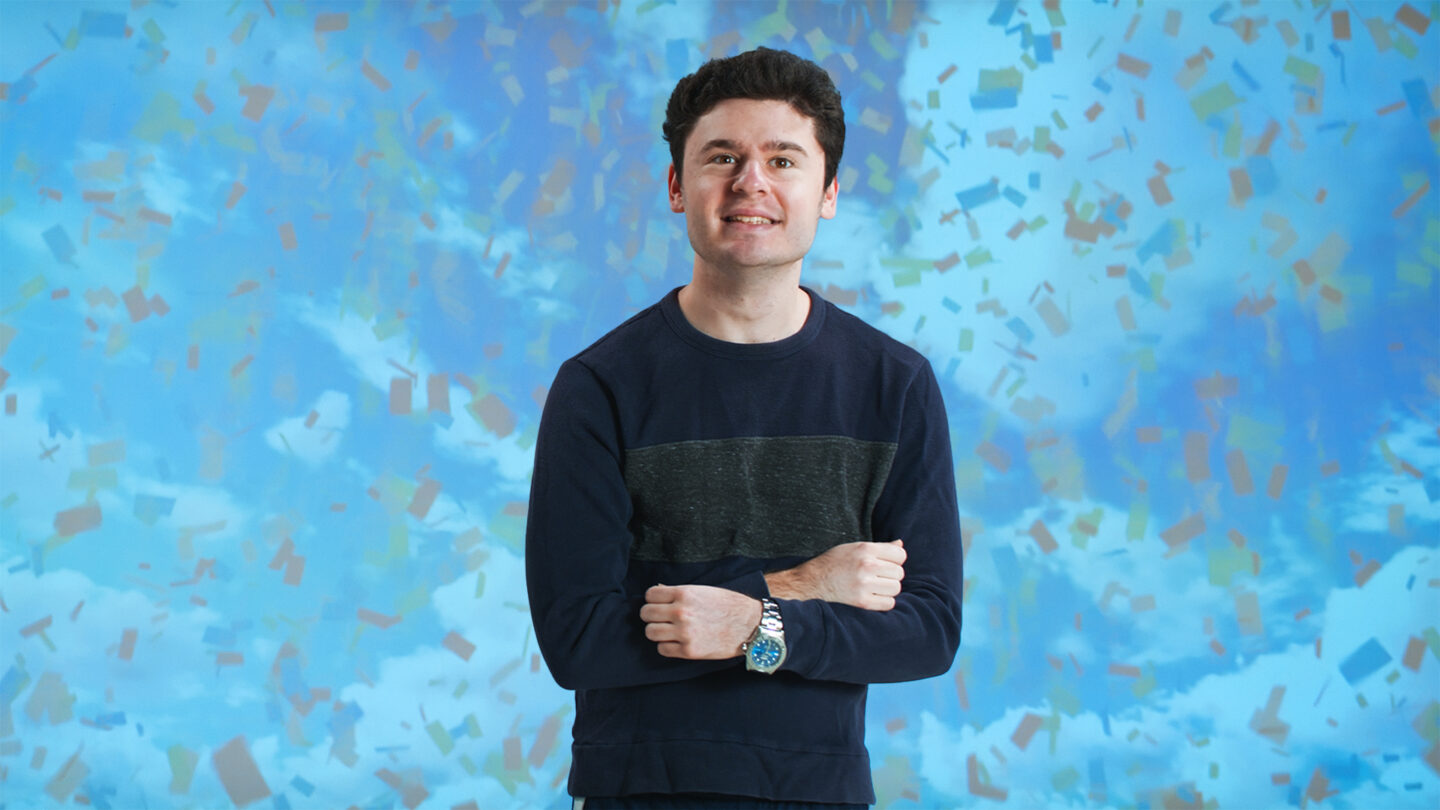
“Hi, are you going to live here? I’d like to be your friend,” Nicholas, a Treasure House resident, said to Zachary Lorence the moment he walked into Treasure House for a tour in July 2022. “We all just lost it,” Lisa, Zach’s mother, said. “We’re like, okay, we found a really good place.” Zach, a young adult with Autism, moved into his own apartment at Treasure House in August 2022.
Treasure House is a residence where young adults with intellectual and developmental disabilities (IDDs) find a supportive community and a personalized plan for achieving independence, inclusion, and purpose as they transition into adulthood. Zach and his family’s journey to Treasure House was riddled with hurdles. From early intervention for his childhood diagnosis, fiercely advocating for inclusion in high school, and participating in a supported living program that did not produce the desired results, Zach has only ever wanted the same opportunity as all others to lead a fulfilling life. In this blog, learn how Zach overcame obstacles to begin life at Treasure House, a nonprofit that empowers his independence with affordable housing, job training, volunteer experience, social opportunities, and more.
In 2000, Zach was born a premature twin to two psychologists in North Carolina. With a perfect Apgar score, nothing appeared to be out of the ordinary until Zach turned one. With consideration for what they knew about childhood development and his sister’s progress, Zach’s parents were concerned when he was not walking, talking, or playing with toys in the traditional way. “Everyone kept brushing it off,” Lisa said. “They would say, ‘He’s a boy. Boys take longer to develop’.” At the age of three, Zach underwent an evaluation that determined he had Pervasive Developmental Disorder – Not Otherwise Specified, a vague diagnosis that did not make him eligible for many state services. To give him the greatest chance of developing to his full potential, the family enrolled Zach in an early intervention program that included speech services and occupational therapy. A few years later, a subsequent assessment indicated that he probably fell within the Autism Spectrum. At the age of 18, Zach received an official diagnosis of Autism and became eligible for specialized services.
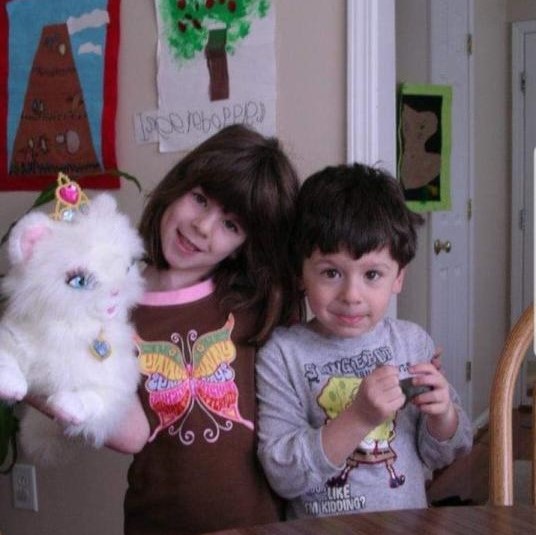
Ensuring Zach’s inclusion in classrooms with neurotypical peers became paramount as he reached school age. “He had a hard time making friends. Everybody loved him because he was always smiling and sweet, but it was hard for him to make real friends,” Lisa said. Despite social challenges, Zach thrived in K-8 public education, where he was supported by special programming and accommodations within inclusive classrooms.
Zach’s ability was brought into question when his ninth-grade Individual Education Program (IEP) was being developed. School representatives told Lisa that they did not believe Zach was capable of learning, and suggested that he participate in a segregated learning program for students with disabilities. Upon witnessing that a significant number of students in the program were nonverbal, Lisa felt more convicted than ever to advocate for Zach.
“I knew that inclusion was the only way for him to survive. I knew that if he went into that classroom, he would never be the same kid,” she added. “I thought that it would crush his soul. Even though he had some challenges, he could still do things and have a life.” Lisa reached out to a teacher who mentored Zach through middle school. The teacher strongly disagreed with the assessment to separate him, and encouraged Lisa to petition with the help of local advocates. “At the next IEP meeting, everything changed. If it were not for that teacher, I do not know what would have happened. I got very lucky that she helped me advocate for him,” Lisa said.
In May 2018, Zach graduated from high school with a general diploma and 150 hours of work experience. Throughout his high school IEP, he had a homeroom made up of students with various learning disabilities, and participated in a standard schedule of courses and electives. Before graduation, Lisa was told, ‘We’re really glad that we decided to keep Zach in this classroom because he’s really thrived.’”

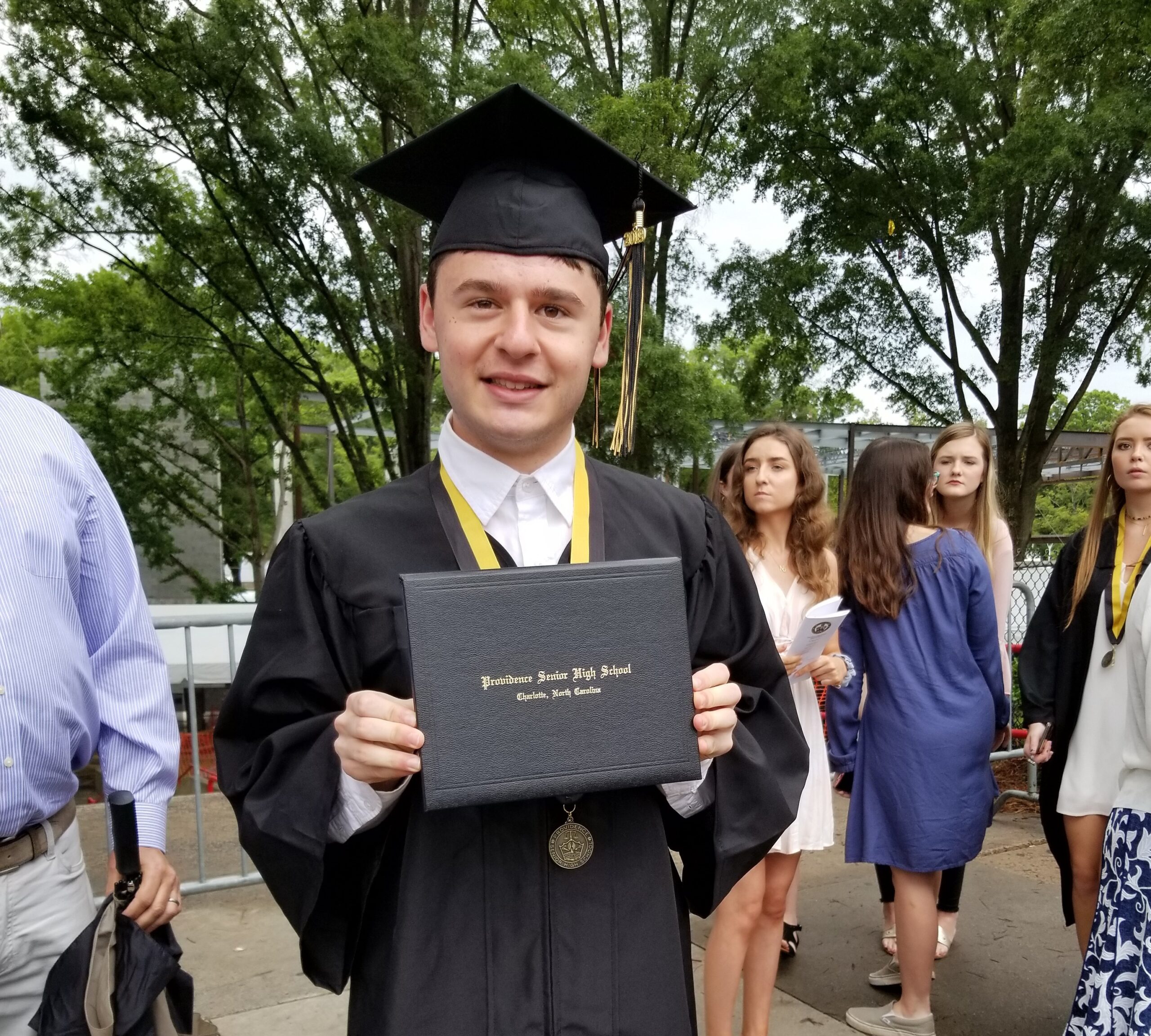
Like any high school graduate, Zach was eager to leave the nest, but “there was not really a plan. In Charlotte, North Carolina, where we lived for 25 years, there were no options,” Lisa said. In response to their ‘Now what?’ moment, in November 2019, Zach’s family uprooted to Arizona so that he could participate in a two-year living program for young adults with Autism come Fall 2020. After a strenuous application process that was exacerbated by the pandemic, Zach began the live-in program via a hybrid experience in June 2020. That October, he moved into the program’s living space full-time. During this period, he shared both a four-bedroom and two-bedroom suite with other young adult males with Autism.
“We were hopeful for Zach to make friends with people that are like him, but the experience did not go over well. It was not a good match,” Lisa said. Zach did not know how to advocate for himself by setting boundaries with his roommates. When peers were not considerate of Zach’s personal space, their noise level, or cleanliness in the shared accommodations, Zach lacked the skills to effectively communicate his needs with them, or to staff. The necessary supports were not in place for Zach to develop this life skill, and “he became a different person. He was miserable. He was depressed. He was anxious. He would not get out of bed. He was so sad,” Lisa said. After all that the family had been through to secure this home for Zach, and with no other immediate solution, pushing through the temporary program was worthwhile.
When Zach graduated from the program in May 2022, the family was back to the drawing board and running low on ideal independent living solutions. At a friend’s recommendation, Lisa scheduled a tour of Treasure House.

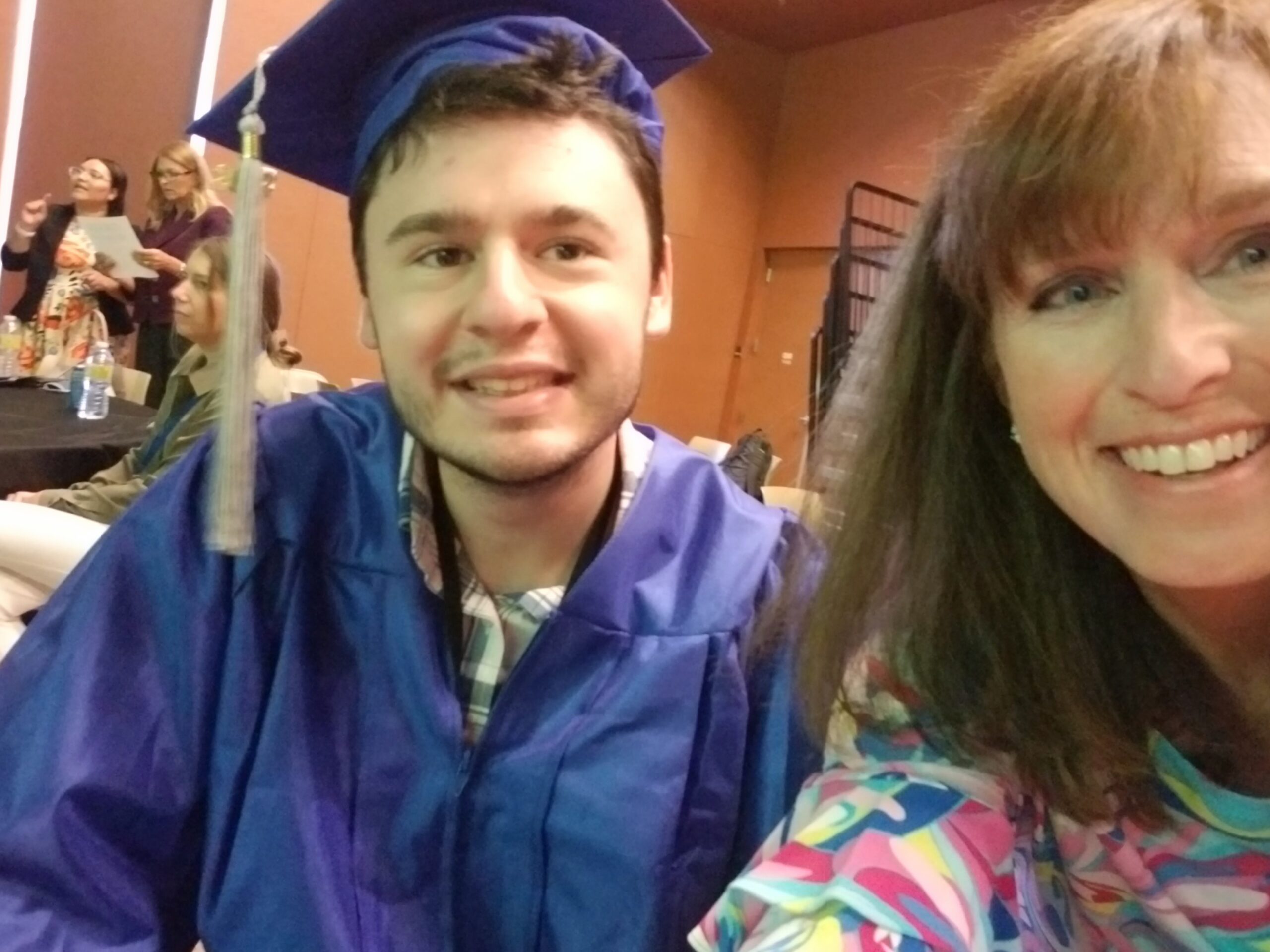
After completing a successful trial stay at Treasure House and becoming a resident, Zach was assigned to a Life Coach, Ray Smith. Life Coaches help residents identify their skills, set achievable goals, and execute a success plan. Right off the bat, Zach’s personal growth goals included structuring a regimented routine around paid work experience, maintaining his own apartment, participating in social activities, and developing meaningful relationships. He also liked the idea of potentially having a girlfriend. Maintaining a full and balanced schedule would help improve Zach’s introversion, and build his life skills.
“Zach came to Treasure House with the abilities to live an independent life, and the desire to be a social individual. His journey at Treasure House has been about building up his confidence,” Ray said. “He is surrounded by so many people that believe he will get far in life, and when he started believing in himself, things really took off.”
Zach was eager to add employment to his Treasure House routine. Job security would not only give him a sense of purpose, but would allow him to contribute to the expense of some extracurricular activities at Treasure House. With help from Ray, Zach updated his resume, which included work experience at a gelato shop and supermarket, and volunteer training at a fast-food chain and assisting living facility. Simulated interviews allowed Zach to prepare answers to potential questions, and develop important questions for the employer. He wanted to communicate through the hiring process that he needed a manager who would understand his abilities, and have the patience and teaching style for him to learn at his own pace.
After several interviews, which Ray attended, Zach secured a volunteer opportunity with Inspira Senior Living. His first assignment was to call out Bingo, a task that pushed the limits of his social comfort zone. After a few volunteer engagements at Inspira, Zach advocated for himself by expressing to Ray that a different opportunity might be more suitable for him. He began volunteering several times a week at Spencer’s Place, an inclusive coffee shop which provides training and employment for individuals with IDDs.
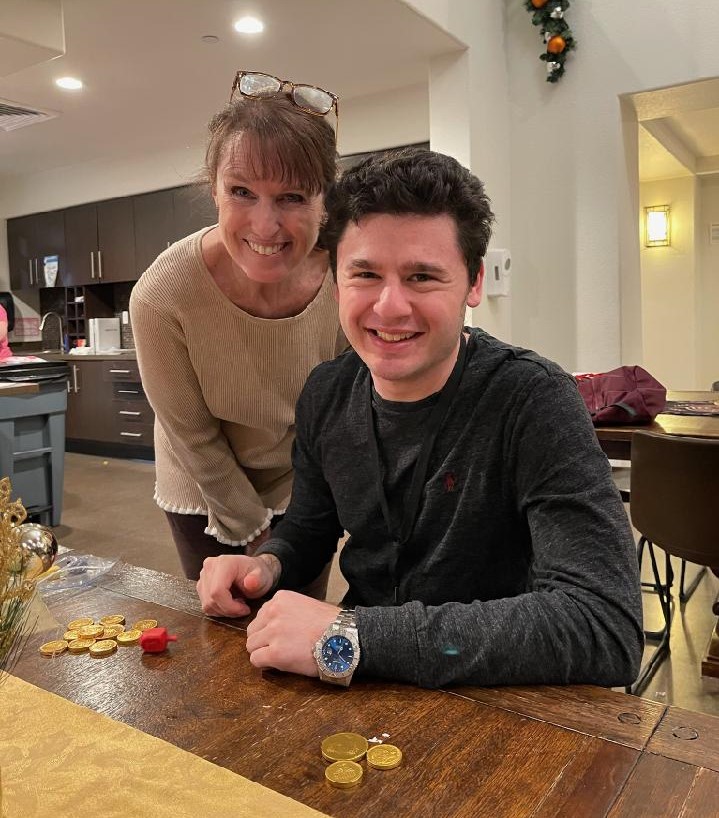
In addition to his volunteer commitment, Treasure House has hired Zach as the Dining Room Maître D’, a job that provides 2.5 hours of paid work each day. His role includes setting and clearing tables before lunch and dinner daily. He works with Treasure House’s Executive Chef to understand which utensils and plateware are needed, fills pitchers with water, sweeps, gathers dishes, and puts them away. This experience allows Zach to get the routine practice of clocking in and out of work, taking initiative, and receiving a paycheck.
“Zach is very detail oriented,” Ray said. “What makes him a model employee is that he wants to get things done the correct way by following processes and not skipping corners.” Zach continues to actively search for paid employment outside of Treasure House.
Zach enjoys the independent experience of going to the store for groceries and essentials, especially with Ray. “Zach is with a cool guy versus his mom. Ray really is so open and honest, and they talk about lots of different things,” Lisa said. “Zach really appreciates that.” When Lisa visits Zach each Sunday, they walk around the nearby pond, grab coffee, play games, or relax in Zach’s apartment. With Ray responsible for prompting Zach to manage weekly chores, there is no pressure on mom to help with shopping, laundry, tidying up, hygiene, or medication management. “Zach does really well with visual reminders,” Ray said. “He’s got alarms set, and a calendar, whiteboard, and sticky notes in his room so that wherever he looks, he is reminded to stay on task to complete his goals.” Reminders include things like changing sheets, brushing teeth, sweeping, taking medicine, and more. Zach also subscribes to a deep cleaning service to supplement his apartment maintenance routine.
Zach has broken emotional and social barriers during his time at Treasure House. When he first arrived, he was guarded around peers and staff. “It took some time for him to feel like he could go to any of the staff members to express anxiety or stress, but he has eased into feeling comfortable a few small steps at a time,” Ray said. “Once he developed trusting relationships with staff, integrating him into activities with peers became easier.”
A typical symptom of Autism and other IDDs is some failure to express and recognize social cues. Staff noticed that Zach would linger on the outskirts of common areas to signal that he wanted to be included. With this communication not being easily understood by other residents, staff began approaching his behavior by warmly inviting him to participate, providing him an easy way in. A robust activity calendar, with at least two optional social events planned each day, support Zach’s goal of belonging within social circles.
A common social stigma is that people with IDD should be treated differently. “Even when people with IDD feel included in high school or other community settings, they never really get to be just of the guys or one of the girls hanging out in an equal setting,” Ray said. “Being around friends and getting to joke around is not something many residents have experienced that often. At Treasure House, our residents are truly among their peers. Every day, they get to experience life with people who are like them.”
Zach has gravitated towards several of his male house mates. Activities that he enjoys with friends include going for coffee, listening to music, dancing, swimming, riding bikes, and playing board games and video games. He also finds time to exercise, go to the mall, bowl, watch movies, and hit balls at the driving range. Zach is a talented pianist, but only performs in his apartment, which he values as a retreat when over-stimulated. As a Treasure House resident, Zach is known for being extremely honest, thoughtful, perceptive, and caring. He looks out for his peers, and speaks up when he feels someone is being treated with anything other than kindness. Zach also likes to spend one on one time with Ray, who says that Zach’s ability to communicate his thoughts, needs, and desires have improved significantly as their relationship has developed.
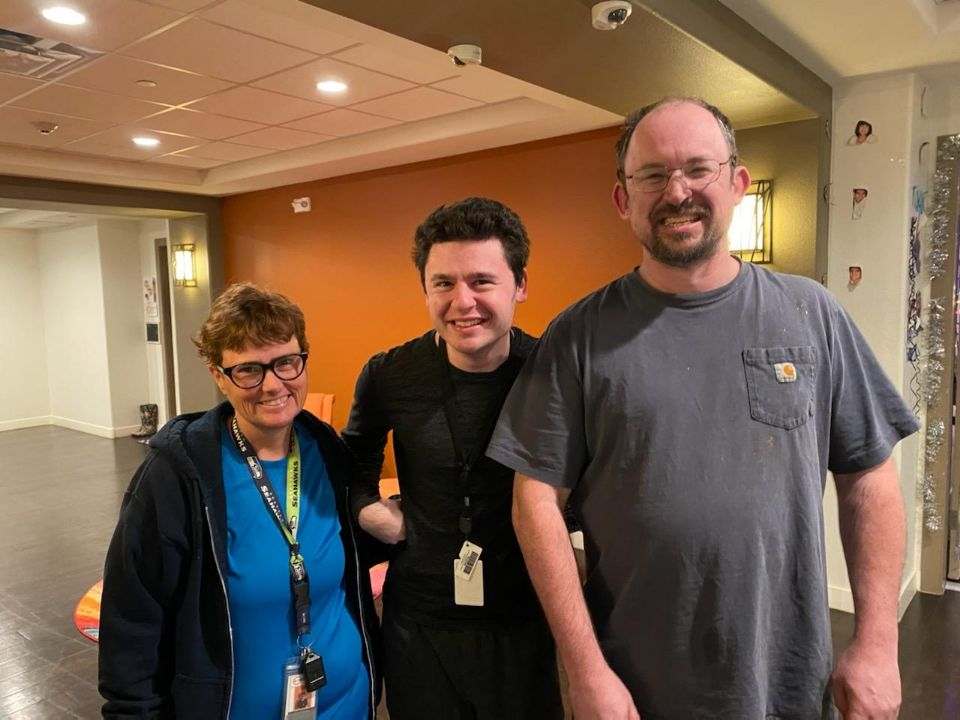

Nearly a year since moving to Treasure House, and with a strong foundation beneath him, Zach continues his personal growth journey as a skilled worker, friend, and self-advocate. Now proficient in life at Treasure House, the next step is to expand his community beyond the walls of the residence. He and Ray are looking at community theater and sports programs.
While families from all over the nation have determined that life at Treasure House is worth the distance and separation from their loved one with IDD, Zach’s family feels fortunate knowing that his independent living solution is close to their home. Even then, Zach sometimes forgoes the opportunity to visit his family because of activities at Treasure House that he looks forward to. These bitter sweet instances thrill his parents, and make it even more special when Zach feels their absence and asks to come home.
Lisa says that she has peace of mind knowing that Zach is safe and loved. “With all the other goals we had have had, those are just the icing on the cake. At the end of the day, I don’t worry about him in this world, and there’s no price tag you can put on that.”
To learn more about Treasure House, or to contribute, visit https://www.treasurehouse.org/.